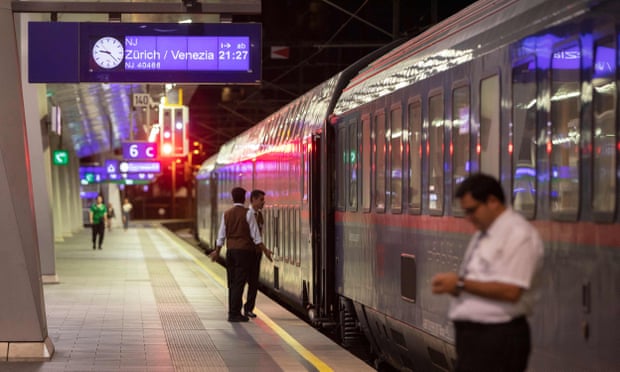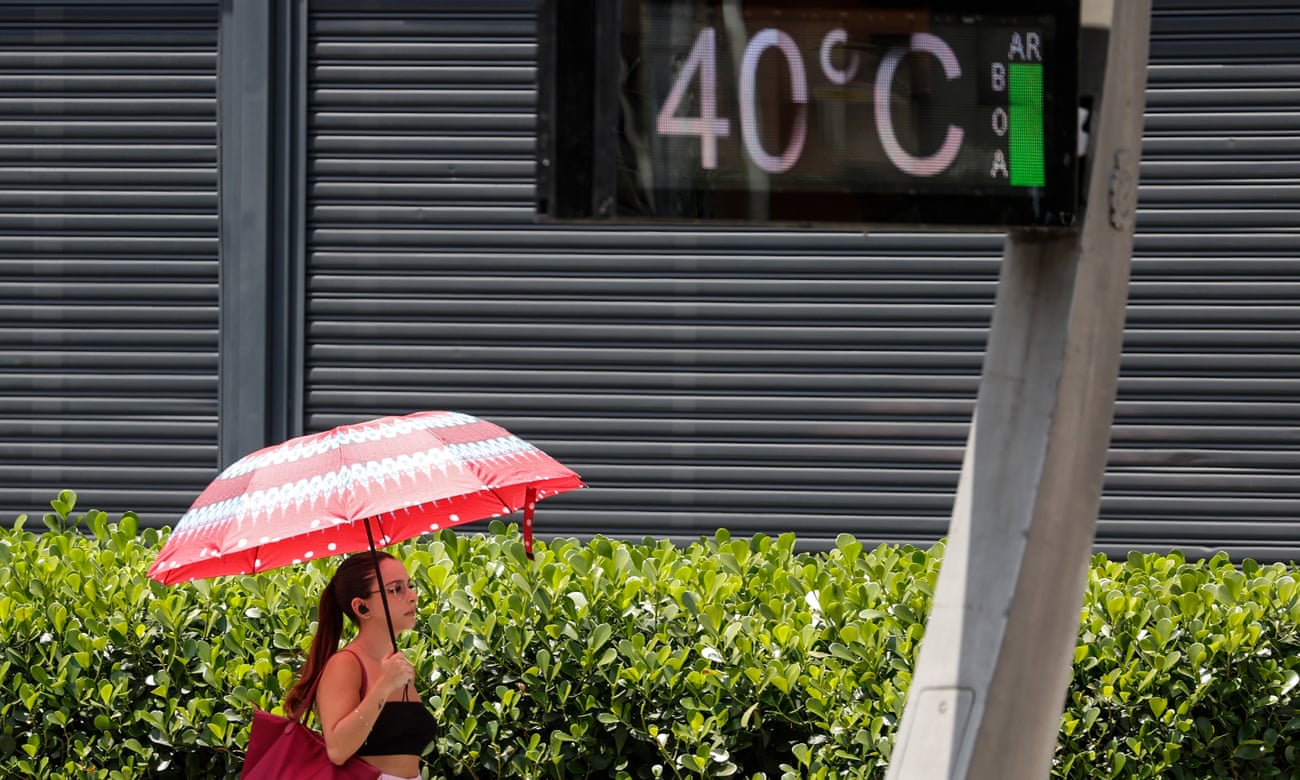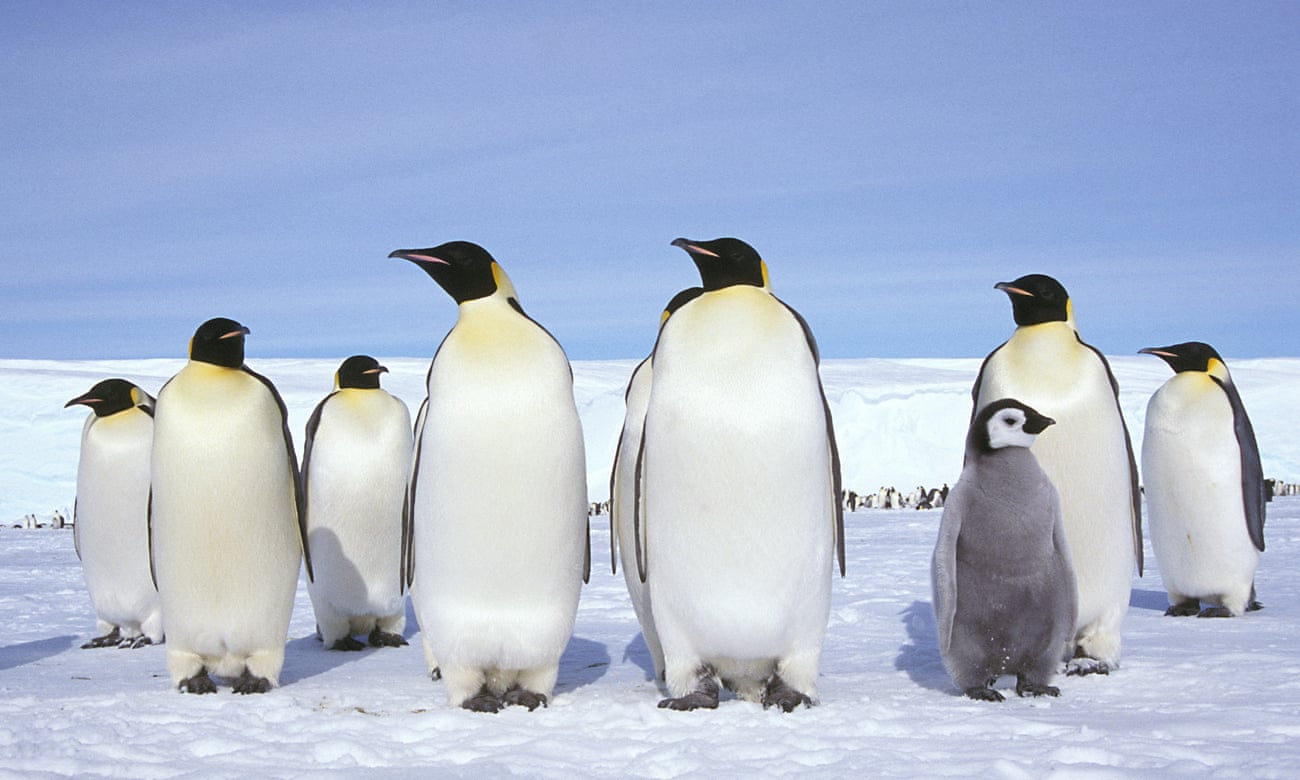The Guardian
Rail networks in most countries have been starved of funding while motorways lengthen, study shows.
(Text continues underneath the photo.)

A sleeper train in Vienna. Austria is one of only seven countries in Europe that has invested more in its rail network than on roadbuilding in recent years. Photograph: Alex Halada/AFP/Getty Images.
European governments have “systematically” shrunk their railways and starved them of funding while pouring money into expanding their road network, a report has found.
The length of motorways in Europe grew 60% between 1995 and 2020 while railways shrank 6.5%, according to research from the German thinktanks Wuppertal Institute and T3 Transportation. For every €1 governments spent building railways, they spent €1.6 building roads. (...)
“Most European countries have been actually encouraging car use by investing large amounts of public money into expanding motorway infrastructure.”
In the public and political debate, Mattioli added, small investments into bike lanes and railways were heavily scrutinised while investments in roads were taken for granted. “This absolutely needs to change if we are to meet climate mitigation targets in the transport sector.” (...)
The EU plans to cut its greenhouse gas emissions by 55% by the end of the decade from 1990 levels but has failed to make any headway in its transport sector. Road transport was responsible for three-quarters of the sector’s emissions in 2020. (...)
“The €9 and €49 German tickets have given many the impression that people would shift to public transport if it were cheaper. But levels of service and infrastructure networks are much more important for modal shift. So I think we should be talking less about fares and a lot more about infrastructure.”
Complete article
Tags: #climate #climate_change #climate_crisis #europe #eu #european_union #transport #cars #public_transport #roads #rail #railways #infrastructure #greenhouse_gas_emissions #greenhouse_gas #air_pollution #pollution


